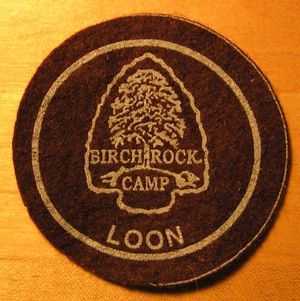Help:How to use pictures
To add an image to an article first you must upload the image. If the image is on the internet then you need to save it to a place on your computer. Once the image is on your computer click the upload file link in the toolbox on the right. Click the browse button to the right of the source filename box. find the image that you want to upload and double click on it. Type an english name for the file in the destination filename box but be sure to keep the extenstion (the part after and including the dot, like .jpg). Add a short summary of what the picture is of and then click the upload file button. You may get a warning but be sure to save the file anyway. After that you will be brought to a page with the picture on it. Now you can utilize that picture in an article. In the table below you can see the different ways you can add images to a page on Birchrockopedia. There are a few more but in order to keep pages uniform please use the methods below.
| Description | You type | You get |
| Link to description page | [[:Image:Loonbadge.jpg]] | |
| Link to desciption page with different text |
[[:Image:Loonbadge.jpg|The loon badge]] | |
| Link directly to file | [[Media:Loonbadge.jpg]] | |
| Link directly to the file with different text |
[[Media:Loonbadge.jpg|The loon badge]] | |
| Thumbnail on the right | [[image:Loonbadge.jpg|thumb|The loon badge]] |
You may make a gallery of images by doing something like this:
<gallery> Image:McWain.jpg|Lake McWain Image:duck.jpg|The path of a duck Image:seal.jpg|The path of a seal Image:whale.jpg|The path of a whale </gallery>
The result looks like this:
- McWain.jpg
Lake McWain
- Duck.jpg
The path of a duck
- Seal.jpg
The path of a seal
- Whale.jpg
The path of a whale
